The four songs of Richard Strauss’ Op. 27 are among the most admired and most frequently performed vocal works. They include “Ruhe, meine Seele!” to a poem by Karl Henckell, “Cäcilie” to a poem by Heinrich Hart, and “Heimliche Aufforderung” and “Morgen!,” with both songs based on poems by John Henry Mackay.
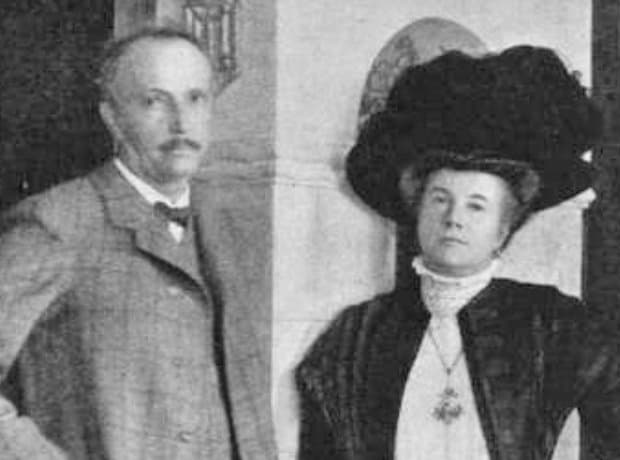
Richard and Pauline Strauss
Strauss offered the complete set to his wife, operatic soprano Pauline de Ahna, as a wedding gift. Their musical collaboration started in the late 1880s and lasted throughout their married life. After their marriage, the couple devoted their collaborative efforts to song recitals and concerts, where Richard performed the dual role of piano accompanist and orchestral conductor for his wife. Without doubt, Pauline was the principal source of inspiration for the vast majority of his extensive oeuvre of Lieder.
Richard Strauss: Vier Lieder, Op. 27, No. 4 “Morgen” (arr. Strings)
Opus 27 expresses a highly varied range of characters and musical style, shifting from the search for inner peace in song 1 to the extroverted exuberance of love in song 2, from the seduction amidst the crowd in song 3 to the deeply personal emotions expressed in “Morgen!” (Tomorrow).
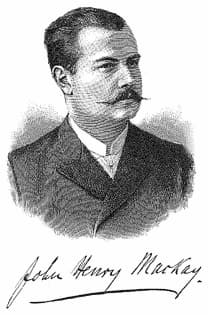
John Henry Mackay
Tomorrow!
And tomorrow the sun will shine again
and on the way that I will go,
she will again unite us, the happy ones
amidst this sun-breathing earth,
and to the beach, wide, wave-blue
will we still and slowly descend
silently we will look in each other’s eyes
and upon us will sink the mute
silence of happiness
The author of the poem, John Henry Mackay, knew Strauss personally. Mackay was born in Scotland, but his mother came from a prosperous Hamburg family. She returned with her son to Germany, where, in due course, he gained fame as a poet and author of naturalist sentiments. His novel “The Swimmer: The Story of a Passion” was one of the first sports novels, “describing the rise and fall of an individual who prides himself on his individuality, but who finally understands that individuality by itself is not enough to sustain him.”
Richard Strauss: Vier Lieder, Op. 27, No. 4 “Morgen” (Andrè Schuen, bass-baritone; Daniel Heide, piano)
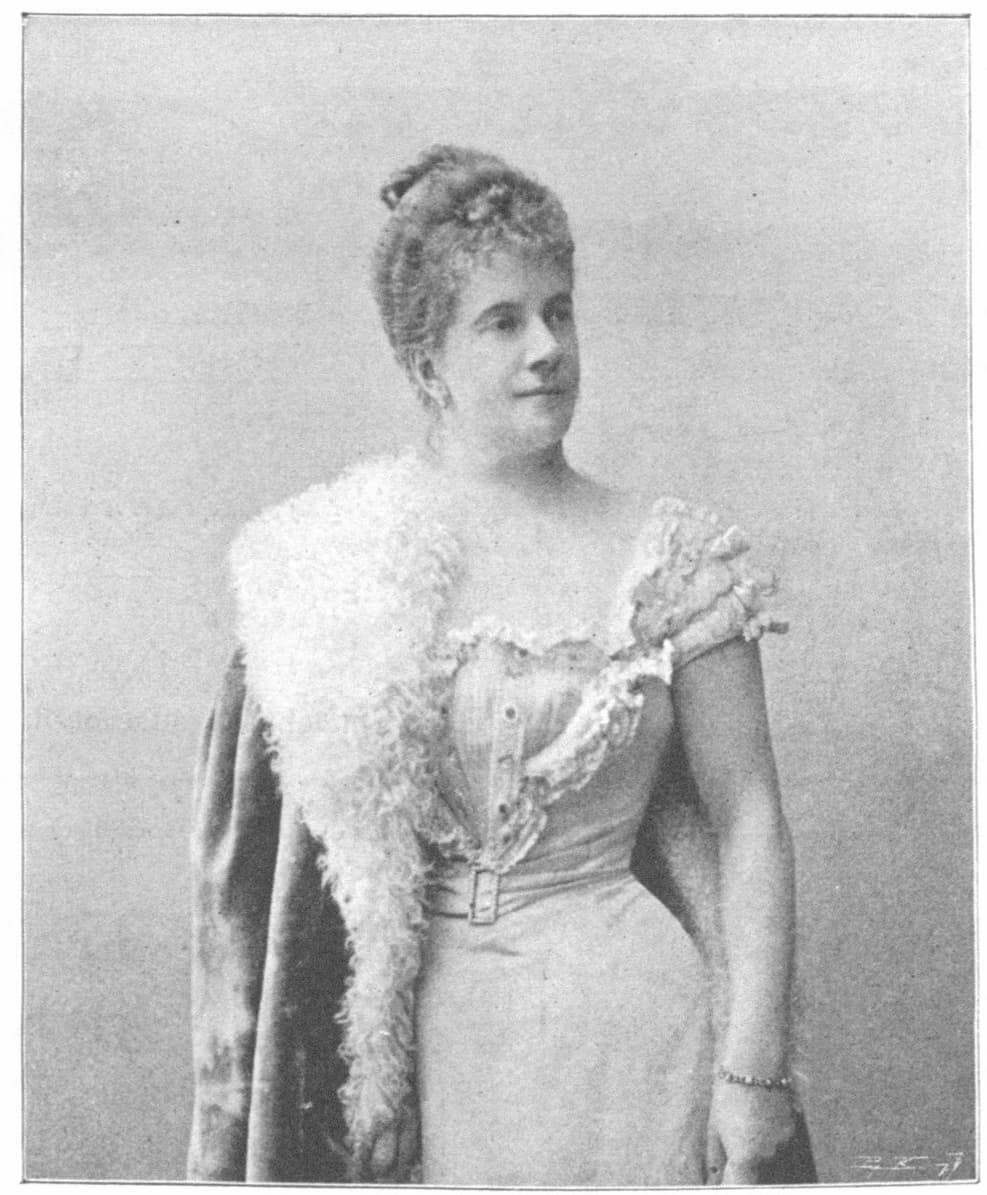
Pauline de Ahna
The Strauss setting is simple harmonically and in organization, but offers some thought-provoking complexities. And as always, Strauss is acutely sensitive to the text. The long instrumental prelude, its exact repetition with added vocal line, a surprise coda, and a short reprise comprise the overall structure of the work. The introduction emerges quietly from a backdrop of silence, with a radiating background providing the rhythmic pulse. The instrumental foreground and background eventually join to create a unified canvas for the vocal line.
The literary meaning of the poem is mirrored in the music, as the poem begins with a conjunction that suggests aforethought, with the instrumental prelude assuming this role. The static vocal line gives the impression of speechlessness, much different from the beautifully shaped melodies previously heard. This effect is amplified by a thinner texture and dynamics that provide a much more intimate quality. The silence does descend, and the coda, with overlapping vocal entries, provides a change of perspective and focus. According to a scholar, “Strauss delivers denouement in the short coda.”
Richard Strauss: Vier Lieder, Op. 27, No. 4 “Morgen” (arr. Hubay) (James Ehnes, violin; Andrew Armstrong, piano)
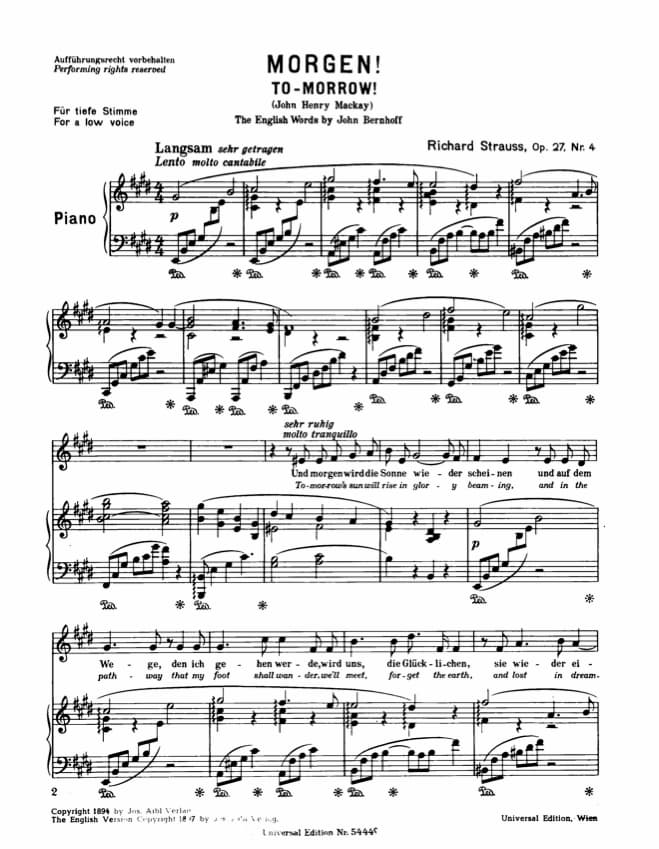
Richard Strauss: “Morgen!”
Originally, “Morgen!” was scored for voice and piano, but in 1897, Strauss orchestrated the accompaniment for orchestral strings plus a solo violin, a harp, and three horns. Expanding the colour palate, the orchestra plays with muted strings and a pianissimo dynamic throughout. The harp plays arpeggios, and the solo violin accompanies continuously until the word “quiet,” and the horns enter. The violin and harp re-enter and silence the horn.
The music throbs with classic harmonic devices of Romantic music. We find emphatic dissonances on the strong beat of the measure, expressing the heartfelt yearning of a rapturous love song. The vocal line seems constantly caught in a dream-like state, and harmonic tension paints the inner elation of a lover staring in wonder at the face of the beloved or, in the case of the poet, the desired. It is a song of quiet optimism, comfort, and assurance, something that’s very much needed in these troubled times.
For more of the best in classical music, sign up for our E-Newsletter

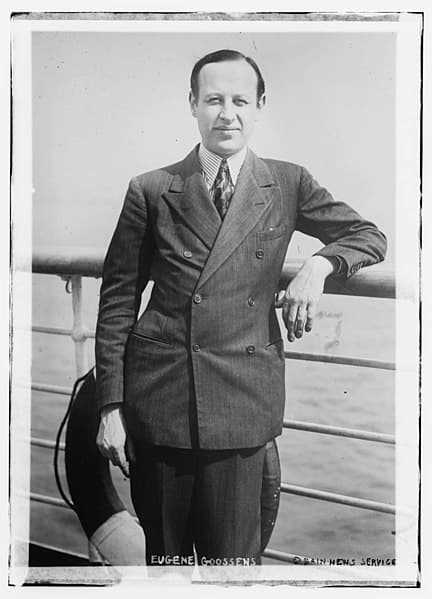
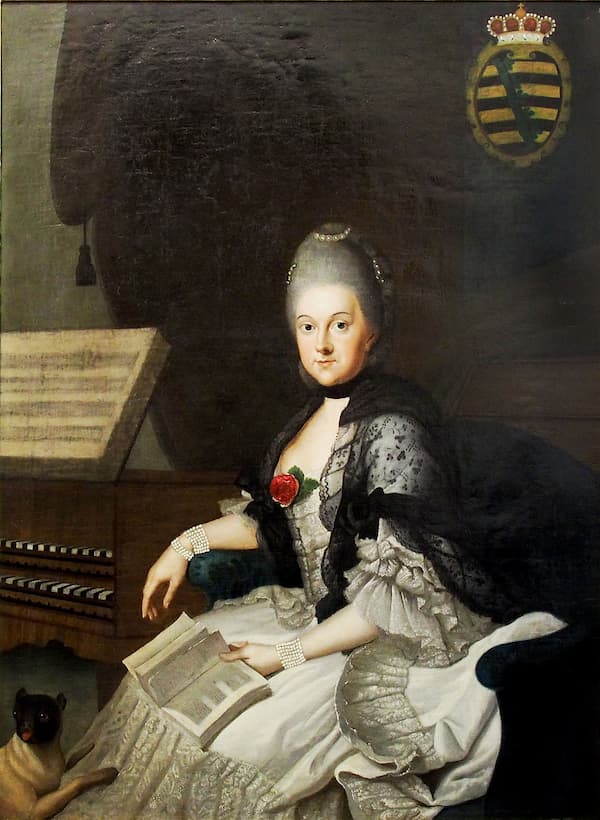
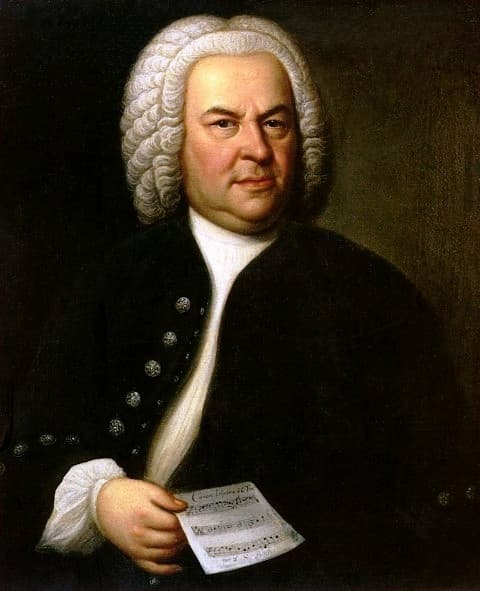
Jag vill gärna veta hur och på vilket sätt John Mackay kände Richard Strauß personligen. Hur påverkade de varandra?
Tacksam för svar!